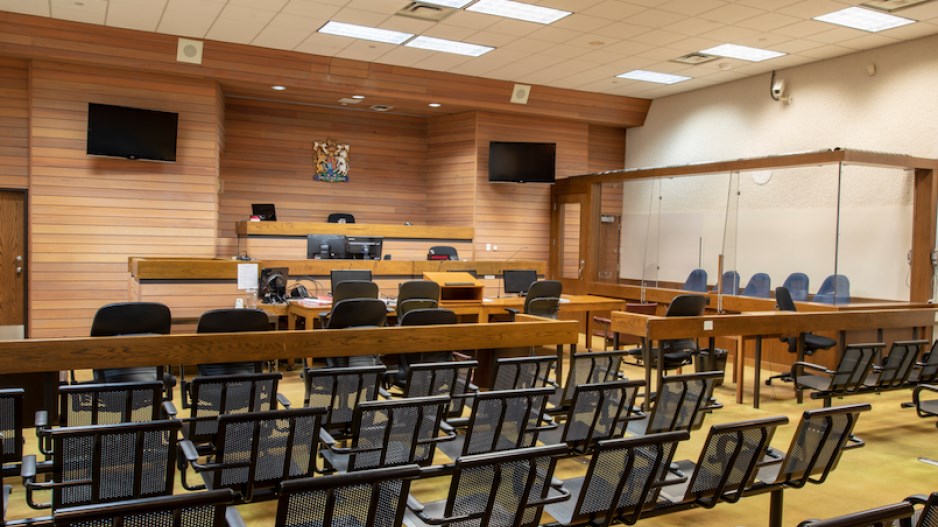British Columbians will see a difference in the way the province’s lawyers practice after the legal profession’s regulator adopted recommendations identifying changes needed in the legal marketplace.
A Law Society of B.C. task force identified areas in legal services that will likely require changes in regulation and modernization in relation to the practice of law, business structures, legal education, accreditation, lawyer development and other areas.
“Change is constant in all aspects of our lives, and this is true in the practice of law as well,” said the report adopted Sept. 10, which made 23 recommendations. The task force began work in January 2019.
Further, it said, the COVID-19 pandemic has caused significant change in legal practice just as it has in so many other areas of life.
“The COVID-19 pandemic is one of the great catastrophes of our times, a public health crisis that has also caused great upheaval, in the legal system as in society generally,” the report said. “At the same time, it has catalyzed changes in the legal system that are welcomed, even seen as overdue, by some.”
Some changes have already begun, such as those already recommended by the society’s law firm regulation task force.
There, the society has already been looking at altering the traditional definition of a law-assistance-providing firm to include so-called alternate business structures already seen in business in the United Kingdom and Australia. Changes there allowed non-lawyer-owned companies to offer legal services.
In the UK, this became known as “Tesco law,” as legal services could be found at supermarkets such as the Tesco chain.
The task force said current B.C. limitations on ownership stifle both innovation and investment permitting innovation to happen.
Further, the society several years ago expanded the use of notaries and paralegals to provide services.
The society also reported it’s going to be more responsive to British Columbians’ needs through making legal advice more accessible.
The report said, according to 2020 Ipsos-Reid survey data, 85 per cent of British Columbians experience serious, difficult legal problems and receive no legal help or get legal assistance from someone other than a lawyer.
As a result, benchers adopted the society’s licensed paralegals task force’s recommendation to develop a regulatory innovation sandbox in which non-traditional service providers may apply to provide a defined scope of legal services to those currently underserved.
As part of that initiative, the society addressed how it deals with non-lawyers practicing law.
“The law society will not take action against persons who are apparently acting contrary to section 15 of the Legal Profession Act unless, in the discretion of the executive director, there is a significant risk of harm to a person or the public.”
Among recommendations were that the society should:
- evaluate how existing and emerging technologies can better support legal services and address regulatory impediments that exist in permitting their use in the provision of services;
- move to amend regulatory structures to allow for innovation in legal service delivery and alternative business structures while protecting the public;
- re-evaluate current regulations and restrictions on law firm ownership and investment, as well as multi-disciplinary practice and partnership structures to ensure they are not inhibiting innovation, or prohibiting a more efficient and effective practices of law, and if they are, work to change these restrictions;
- advance its initiative on the regulation of licensed paralegals to improve access to legal services;
- consider a review of the traditional law firm model and identify how to improve mental health and vulnerability to substance use issues and to lessen unnecessary stress;
- regularly reach out to and develop resources to support in-house counsel and government lawyers, and generally lawyers who are not working in the traditional firm or sole-practice models;
- continue work on Indigenous legal services by understanding where more support is needed and listen to and work with Indigenous peoples to address that need;
- re-consider the accreditation process for lawyers in British Columbia, with special consideration given to how to incorporate more skills-based training into that process;
- ensure current and future regulation is amended and created to be in accordance with equity, diversity and inclusivity principles.
- continue to prepare and respond to the increasing threats to the rule of law at the local, provincial and federal levels;
- in consultation with First Nations, review the society’s governing legislation, rules and code of conduct to include and reflect Indigenous law and experiences; and
- in consultation with First Nations, identify ways to provide assistance with the question of identifying how to include Indigenous laws and legal orders into the justice system.
@jhainswo




